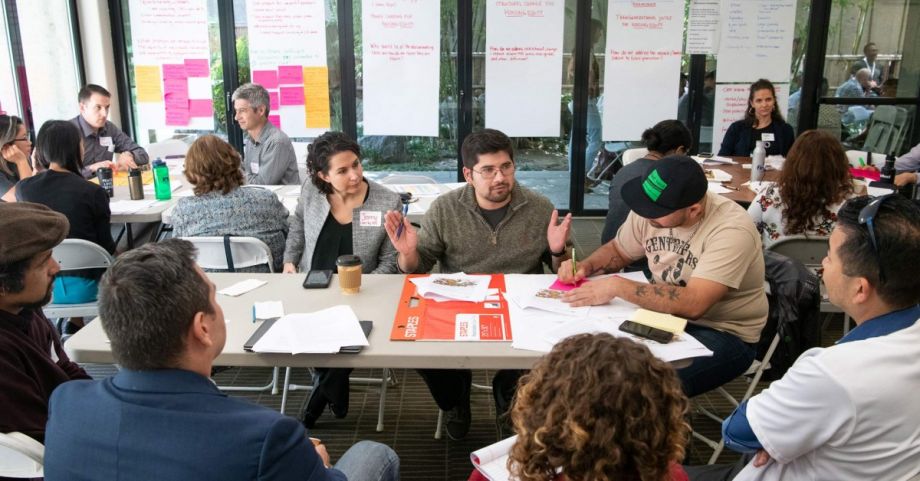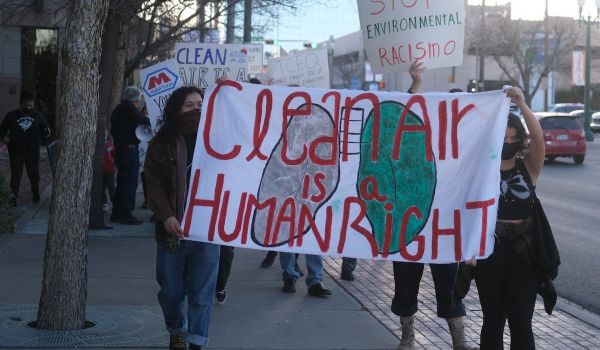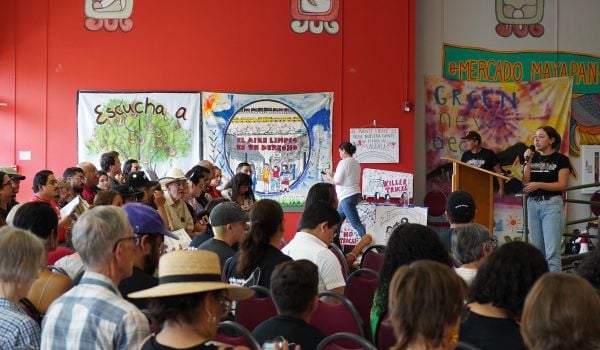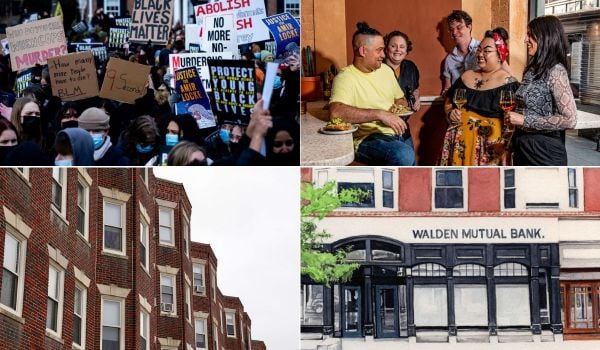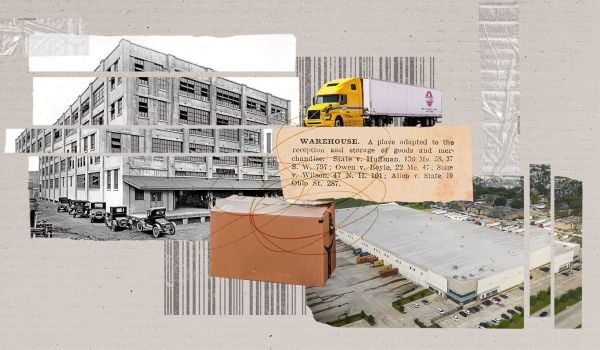We are in the midst of a generation-defining moment, with nearly the entire world united in response to a global crisis. The environmental co-benefits are dramatic. In Los Angeles, where I live, our skies are clear as vehicle trips, flights and other pollution-generating activities have decreased dramatically. Many folks are saying it’s what would happen if we immediately took action to limit global warming. Comparing coronavirus to climate action is irresistible, with innumerable thought pieces about lessons learned: embracing a science-driven approach, the dangers of delaying action, quelling misinformation and denialism, and embracing permanent lifestyle changes.
But it’s not a perfect analogy. In the United States, we are reacting to a crisis with draconian measures that have a huge ripple effect. Social distancing measures are saving lives, but they are also wreaking havoc on livelihoods. While some knowledge economy workers have the privilege of working from home, other industries are bearing the brunt of the early recession, with a disproportionate impact on low-income communities and communities of color. The impacts on mental health and wellbeing are vast, as people are worried about their jobs, housing, and small businesses, all while being physically separated from their social support networks. This is not a model for effective climate action. The quip that “climate change needs coronavirus’s publicist” is especially dangerous because people may come to associate the fight against climate change with an attack on livelihoods.
And while climate leaders are distracted, bad actors are taking advantage. As the United Nations shifts its focus from climate change to coronavirus, the wind and solar industries are facing huge setbacks. Meanwhile, the Trump administration is relaxing pollution rules and the plastics industry intensifying its lobbying against bans on single-use plastics. These are calculated moves to advance long-held, anti-environmental agendas. While we are seeing temporary environmental improvements, if we aren’t careful, we could end up in a worse place than we began before COVID-19.
Many of the same people who are vulnerable to the impacts of coronavirus are also vulnerable to the impacts of climate change – including but not limited to older adults, people with chronic illnesses, people experiencing homelessness and/or social isolation, and those with limited access to safe transportation and public services. It is no coincidence that low-income communities and communities of color have higher mortality rates, as they frequently suffer from poor health outcomes stemming from systematic inequities and injustices such as redlining, pollution exposure, and limited access to jobs, nutritious food, and parks and open space.
Both the disease and social distancing mandates are inherently unfair. Climate change is also unfair. Privileged actors created the climate crisis, but our vulnerable neighbors are the ones that will suffer most from increasing heat, poor air quality, extreme weather, and other climate impacts.
We can do so much better in responding to climate change. We can plan and implement climate action strategies that equitably distribute benefits and burdens, including improved health and wellbeing. We can uphold the Paris Agreement and tackle climate risk in an inclusive manner that genuinely engages and prioritizes historically impacted communities. For built environment professionals in particular, we can embrace a regenerative approach to our buildings, spaces, and places. Indeed, we are already seeing these equitable climate actions occurring across the country:
In Los Angeles, both the City and County have embraced a ”Just Transition” framework, with pathways for every Angeleno to join a greener economy that is based on clean and renewable energy sources. In stark contrast to the coronavirus response, a Just Transition does not force a choice between public health and a healthy economy. Climate leaders declare that we can have both – in addition to a clean environment – by providing pathways to future jobs, supported by education and training programs. The County Board of Supervisors is even formalizing youth participation in the policy discussion through the creation of a Youth Climate Commission.
In New Orleans, a city that has famously grappled with hurricanes and coastal flooding, climate action is seen as an opportunity to achieve equity by addressing the needs of residents of color, low-income individuals and families, youth and older adults. The 2019 Climate Change Equity Report identifies concrete goals and actions to reduce GHG emissions while expanding employment opportunities and strengthening community connections. The report urges city agencies, nonprofits, and individuals to work to reduce pollution, lower energy costs, promote recycling, and improve transit service across the city.
Along similar lines, the City of Portland, Oregon is investing in climate programs and policies that are rooted in justice and equity. The Portland Clean Energy Community Benefits Fund, created through an overwhelmingly supported ballot measure, utilizes a 1% surcharge at large retailers to finance clean energy, energy efficiency, home weatherization and solar installation projects. The Fund is specifically designed to benefit communities of color and low-income residents with job training programs and project funding.
As a climate professional, I am deeply inspired by the embrace of inclusive climate action within our cities and communities. When I began working on New York City’s climate initiatives during the Bloomberg administration, we primarily focused on measures with the greatest “bang for the buck,” seeing energy efficiency in large buildings was the quickest path to reducing emissions. But that wasn’t going to be enough to sustain the movement. When developing the latest 1.5°C plan to uphold the principles of the Paris Climate Agreement, we made a concerted effort to prioritize emission-reduction measures that addressed social and economic inequities. That meant deep energy retrofit programs that help preserve housing affordability, expanding bicycle infrastructure in priority districts, and adopting commercial waste zones that reduce truck trips and air pollution.
The reaction to coronavirus, by comparison, was a series of rushed decisions that were a recipe for unintended (though not unforeseen) consequences. We should not be encouraging people to see this as a positive example. Staying at home has shown that large-scale environmental improvements are possible, albeit at great expense. Our response to climate change can show that we can achieve lasting change by prioritizing equity and inclusion.
Christopher Rhie is an urban planner and sustainability strategist at Buro Happold. With a background in public policy, urban design, and environmental management, Christopher has extensive experience with the development of sustainability and climate action plans for city and county governments, as well as colleges and universities across the United States.

